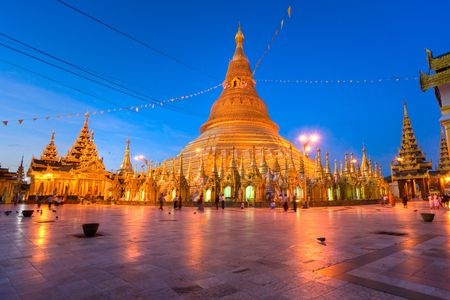13 August, 2015
The political and economic reforms launched in 2011 have focused the international spotlight on Myanmar. Now entering their fourth year, Myanmar’s reforms to date have been impressive but more is required. Elections will be held in 2015 and while the National League for Democracy (“NLD”) party is likely to control Parliament, the next government is an unknown creature.
Southeast Asia’s Final Frontier
Much has been said and written about Myanmar’s potential since 2011. The country’s vast natural resources, arable land and geographic advantages are undeniable, and many investors have seized the opportunity to get in on the ground floor. There are many others however who have been more restrained, choosing to observe developments from the sidelines as the dust settles. For now, the risks involved in venturing into Asia’s last frontier are significant enough to keep many investors at bay.
The pace of economic reforms in Myanmar is encouraging. In 2012, a new foreign investment law was passed and the kyat was placed on a managed float. The next year, telecoms licenses were awarded to Norway’s Telenor and Qatar’s Ooredoo, ending the state’s monopoly over the mobile phone services sector. In 2014, bank licenses were awarded to nine foreign banks from China, Japan, Singapore, Malaysia and Thailand.
Political reforms have also progressed, but at a more cautious pace. In 2012, Aung San Suu Kyi and her party, the NLD, rejoined the political process and competed in their first elections in 20 years, sweeping 43 out of 44 seats contested in the by-elections. Also, political prisoners have been released in batches over the past few years, although arrests and detentions have continued. The first general elections since the initiation of reforms will be held this year, but the military’s continued role in politics remains enforced by the constitution. Official pre-publication censorship in the media has been lifted, but journalists are still subject to intimidation and imprisonment, with one death in custody carried out in 2014.
Guns And Religion
Reforms after almost 50 years of military rule were never going to be easy. Myanmar’s previously independent judiciary is now severely weakened and compromised, and there are concerns about the institution’s ability to uphold the rule of law. This is a critical point. Amendments and changes to national laws and regulations are meaningless unless the state apparatus has the capacity to consistently enforce these laws without bias.
Judgments in political cases remain excessively harsh and the military — despite having its powers curtailed — has effective veto power through its control of over one-quarter of all seats in Parliament, as enshrined in the current constitution. All amendments to the constitution require approval by 75% of Parliament. While calls by the NLD and its supporters to amend Article 436 — the section which stipulates the 75% requirement for constitutional amendments —have been rebuffed by President Thein Sein ahead of this year’s elections.
Other concerns relate directly to the integrity of the state. The government and separatist movements or rebels in most parts of the country have reached ceasefire agreements but conflict continues in the Kachin, Shan and Palaung states. Thein Sein’s aspirations for a nationwide ceasefire agreement on Union Day in February 2015 were not fulfilled and even in areas where fragile peace has been achieved, integration remains a lofty goal.
One malevolent by-product of the reforms appears to be the rise in Buddhist extremism, a rather oxymoronic problem. Since 2012, previously sporadic attacks on Rohingya Muslims in Rakhine state have increased in intensity and frequency. One example of this includes the June 2012 attacks in Sittwe, the capital of Rakhine state, which left around 300 dead and hundreds more killed during ongoing communal conflicts in Rakhine state and the Mandalay region, while hundreds of thousands more have been displaced.
Other observers posit that the apparent emergence of Buddhist extremism could be manufactured. Reports of police inaction during incidences of violence against Muslims and the escalation of attacks that historically focused on the Rohingya now targeting Muslims in general suggest that a hidden hand may indeed be at play. Especially as an increase in domestic unrest would provide the perfect excuse for the army to intervene and assert its continued relevance, even in the face of reforms.
Discrimination against minorities is not limited to isolated actions by radical Buddhists. Myanmar’s citizenship law is restrictive and results in a system with multiple levels of citizenship and accompanying rights. Full citizens (not associate or naturalized citizens) must belong to one of a few selected “national races.” Moreover, some of the bills currently before Parliament would, if passed, place restrictions on interfaith marriages, religious conversions and family planning.
From Icon To Working Politician
The NLD has been based around the iconic figure of the Lady — Aung San Suu Kyi — since its birth and she alone determines the party’s direction. Therefore Myanmar’s transition from a military dictatorship to a democracy-in-waiting is paralleled by the Lady’s own transformation from an icon of democracy to a working politician. The party’s leadership is aging; no one on its 15-member executive committee is below the age of 60. Suu Kyi is 70 this year. Questions about succession within the NLD have rarely been broached and its principal figure is said to maintain a tight hold over the party.
For all the admiration that she garnered for her stand against the junta, Suu Kyi’s halo has slipped since her release in 2010. Where she could previously stand apart from the grime and realities of politics, she now finds herself in the fray with everyone else. Her reluctance to comment on the plight of the Rohingya and her affection for the armed forces has drawn international criticism.
In all fairness, her position is one that any politician would take — condemning the state’s actions against the Rohingya could alienate large portions of the electorate in the Buddhistmajority country, while the support (or at the very least nonopposition) of the Tatmadaw (the official name for Myanmar’s Armed Forces) is critical to secure power. As displayed by Suu Kyi, general statements about democracy and education go down better with the majority and the powers-that-be than pointed criticism and condemnations of human rights abuses. But for a Nobel Peace Prize winner, expectations of moral authority are high.
The possibility of an NLD government poses challenges of its own. The party has shown little to no interest in more mundane matters of policy, choosing to focus its efforts on cementing public support. The party’s first national congress in 2013 saw no mention of policy, and the party’s first policy research institute was only formed later by a group of NLD youth activists. The party will need to break away from its current dependence on Suu Kyi and to take on more substance if it is to have any meaningful hope of survival.
(Un)Likely Bedfellows
Regulations pertaining to the citizenship law are not the only articles in the constitution that the NLD would amend if given the chance. Of crucial importance to the party and Aung Sang Suu Kyi is another clause in the constitution that bars a person with a foreign-citizen spouse or child from becoming president. This disqualifies Suu Kyi from the presidency as her two sons and late husband are British citizens. With Suu Kyi out of the picture, the NLD has no other viable candidate to lead the party and the country in the very likely event that the party wins enough seats to control Parliament. Thein Sein has further indicated that he will not run in the 2015 elections.
One recently emerging option for the post-2015 government is for the NLD to support the candidacy of Shwe Mann, the Union Solidarity and Development Party (“USDP”) chairman and current house speaker. Judging by Shwe Mann and Suu Kyi’s recent statements, a prospective alliance of convenience through a unity government appears to be a viable and mutually acceptable option. The appeal of this solution is clear; it would strike a balance between democratic principles and preserving stability. Importantly, it would also facilitate the NLD’s transition from an underground opposition movement to a fully functional political party with experience in governance.
A Dream Deferred?
In view of how recently Myanmar re-entered the global economy, expecting full compliance with the ASEAN Economic Community’s (“AEC”) provisions in the near future is unrealistic. It will likely take years for Myanmar to complete the necessary policy reforms needed for the AEC and more years after that to fully integrate into the regional economy.
Despite these limitations, the AEC comes at an opportune time for Myanmar, which needs investments in infrastructure and manufacturing, as well as access to skilled labour and professionals to help develop domestic capabilities. At present, investments from ASEAN countries account for almost one-third of foreign direct investment in Myanmar. Investment flows from the region are likely to increase as the AEC takes hold. The challenge for Myanmar will lie in balancing the pursuit of regional integration with its domestic preoccupations, of which there are many.
For further information, please contact:
Jason Liew, Managing Director, FTI Consulting
jason.liew@fticonsulting.com






